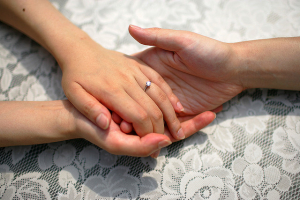
Ghosting in Relationships
“I was seeing someone I met online. We went on a few dates and things seemed to be going well. All of a sudden no

“I was seeing someone I met online. We went on a few dates and things seemed to be going well. All of a sudden no

Often, when we feel overwhelmed in our day to day lives, we wish to share our feelings, thoughts and perspectives with people who are part of our lives. We share these for several reasons – to feel validated, to find an emotional release, to ‘sort things out’ as we speak, and so on. Underlying many of these reasons is the need to be understood. However, sometimes it feels like they have misunderstood us, or have not completely understood. The feeling of being constantly misunderstood by people close to us can deeply impact us.

You are in a whirlwind of emotions, following the discovery of your spouse’s affair. Your perceptions and thoughts could be hugely affected and can greatly influence your decisions. This article has pointers from our team that can help you undertake this journey from the initial discovery to eventual decisions in as healthy a way as possible.

While the world looks at someone involved in an extramarital relationship as a culprit, as psychologists we understand that it is no easy space to be in. There are real psychological struggles involved.
In this article, which is part II of our series of three articles on extramarital affairs, we have focused on the struggles of the person who is involved in an extramarital relationship and have offered some insights to work towards a possible resolution.

As time goes by, the dynamics of marriage as an institution are changing. The demands on people from within and outside a marital relationship are higher. Sometimes, amidst these numerous and stressful demands, people are not able to feel fulfilled emotionally and might seek relief and solace outside their marriage. In this article, as a team of psychologists, we discuss and enumerate the main psychological reasons for extramarital affairs.

Where there are relationships, there are bound to be rough patches. However, sometimes, relationships slip into a rut or a negative pattern where one partner is continuously angry, blaming and hurtful…or is suspicious, mistrustful and doubting. Sometimes, unfortunately, both partners have some such behaviors that adversely affect the relationship. Patterns such as these, when severe and repetitive constitute ‘Emotional Abuse’ or ‘Psychological Abuse’.

Why is it Important to Understand Feelings ? Many of us often wonder how to make our relationships more harmonious. We probably even zero-in on communication in

Why don’t you ever listen?
You just don’t understand me!
Why are you always late?
You must study or you won’t score well
You are of no help at all!
You are so insensitive, you just don’t care, you don’t love me!
Are these statements you have faced at one time or the other? How did it make you feel? How did you respond to it? Did it make you want to listen and cooperate? Or did it feel like an accusation?

Jealousy is a difficult emotion to deal with. It becomes that much more difficult however; when we’re jealous of a close friend, who we also love. Two opposite emotions – affection and jealousy clash…and perhaps leave us agonized. The closer we are to the friend, the worse it could get. Every time we meet the friend, we’re reminded of how he/ she is better than we are…and how we are not good enough. Leaving the situation unaddressed could prove detrimental to the friendship, to our emotional well being or to both

A happy marriage or relationship is where both partners understand each other, love each other unconditionally, communicate effectively and love doing little nothings for each other- so we are told. Those marriages or couples that are not like this are not quite there!
However, we see in our own lives and in lives of those close to us, a number of relationships do not have these qualities. And yet, they last! Some for decades! Ever wondered how is it that without these so assumed ‘basic’ needs, relationships still last?

We specialize in combining psychotherapy with deep wellness practices like mindfulness and meditation and creating a customized mental health plan for individuals and organisations.
We specialize in combining psychotherapy with deep wellness practices like mindfulness and meditation and creating a customized mental health plan for individuals and organisations.

A young woman from another country moved with her family to live for one year in a town near the monastery. When, in the course of the year she discovered the monastery, she would periodically visit to have discussions with the Abbess. The Abbess introduced her to meditation, which became very meaningful for the young woman.
When the family’s year-long stay was drawing to an end, the young woman asked the Abbess, “In my country there is no Buddhism and no one has even heard about meditation. How can I continue to learn and deepen the practice you have started me on?”
The Abbess said, “When you return home ask far and wide for who, among the wise people, is recognized as having the greatest ability to listen. Ask that person to instruct you in the art of listening. What you learn about listening from such a person will teach you how to further your meditation practice.
― Gil Fronsdal, A Monastery Within: Tales from the Buddhist Path